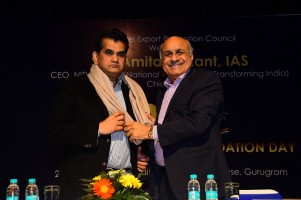
Niti Aayog suggests labour reforms for high productivity
The Dollar Business Bureau
According to Niti Aayog, the government's think-tank that replaced the planning commission, labour reforms are needed to induce productivity and create jobs in the market. The report on labour importantly suggests unifying 44 labour laws into four central ones. The reforms mooted by a panel headed by Arun Jaitley, the Finance Minister, offers an overview of development activities as part of a three-year draft action-agenda.
The logic behind the labour-reforms stems from challenges relating to industrial relations, establishing commensurate wages, social-security and safety for labourers as well as adopting a global labour code. Reforms in labour laws, or centralizing labour codes would also provide a fillip for investments in many sectors, besides reducing the burden of compliance.
The draft-agenda additionally reasoned, "Unless, we bring about substantive change either by amending the existing laws or rewriting them afresh, we cannot expect to change the current situation where low productivity and low-wage jobs dominate the landscape."
The Aayog labelled that ‘substantive reforms’ are expected in labour-intensive sectors such as Jewelry, textiles & apparel, and the start-up ecosystem. The Aayog defined a start-up as an enterprise less than 5 years and/or having an annual turnover less than Rs 25 cr, that has received no subsidies from the government. It has also been mentioned that the concept of fixed-term employment be extended to contract workers in other sectors. Industry experts believed that the concept will help onboard talent when productivity needs to be ramped up.
An international comparison of labour laws pegs the monthly minimum wage in China at $182.5, US at $1242.6, whereas in India it stands at $93 for the same 8 hour shift. By facilitating centralized legal structures, one can assume that the industry will adopt simplicity, that would further help in improving the minimum wage.
Labour reforms mooted by the think-tank expect a centralized legal structure. This structure would help consolidate major laws such as Employees PF Fund, Contract Labour Act, Industrial Disputes Act, Payment of Bonus, Wages Gratuity, Workmen Compensation etc into one.
The Niti Aayog’s draft-agenda also speaks on adopting a centralized customs duty structure of 7%, reduction in corporate tax to 25% and predicts an 8% growth in the FY2017-18.






 to success.
to success.